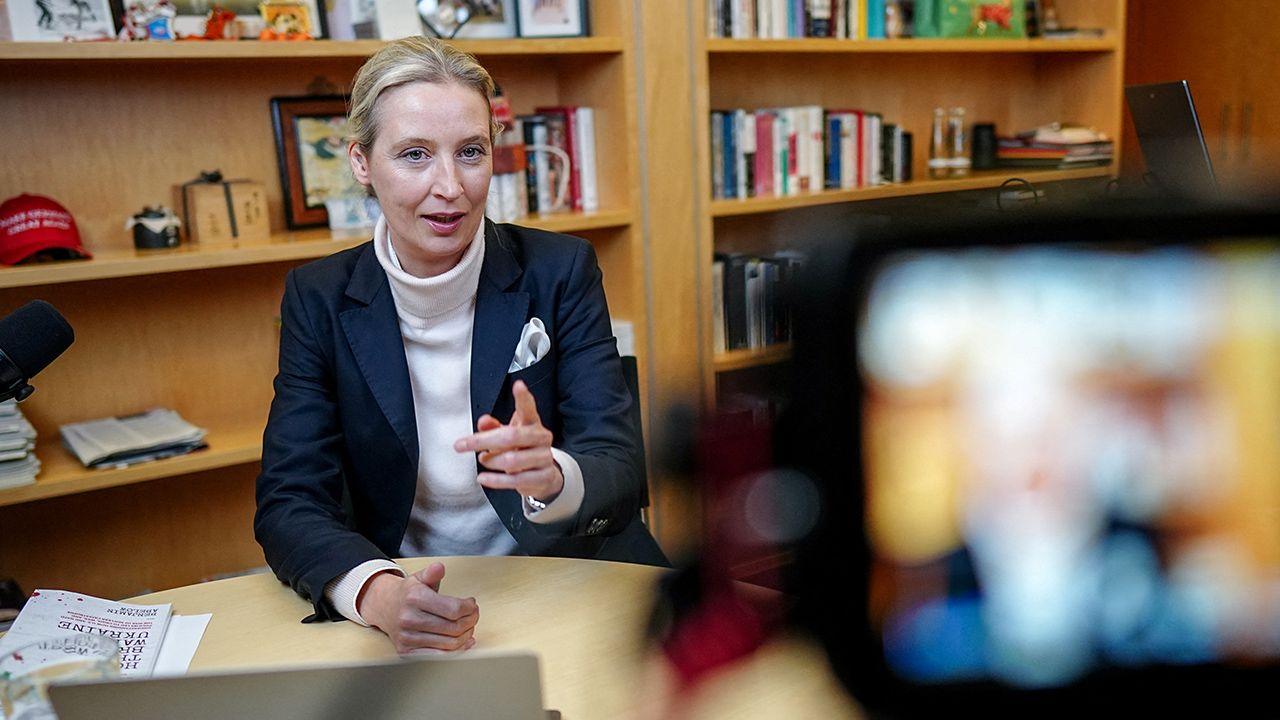AfD classified as extreme-right by German intelligence
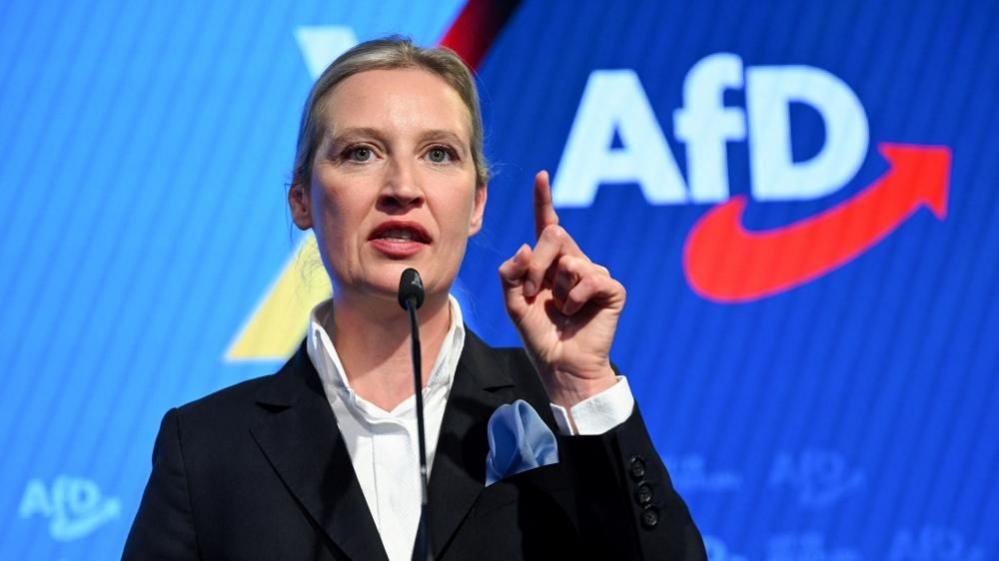
Alice Weidel, joint AfD leader, said the decision was a "severe blow against German democracy"
- Published
Germany's Alternative für Deutschland (AfD) party has been designated as right-wing extremist by the country's federal office for the protection of the constitution.
"The ethnicity- and ancestry-based understanding of the people prevailing within the party is incompatible with the free democratic order," the domestic intelligence agency said in a statement.
The German foreign ministry defended the decision after US Secretary of State Marco Rubio called the move "tyranny in disguise" and Vice-President JD Vance said the Berlin Wall was being rebuilt.
The AfD came second in federal elections in February, winning a record 152 seats in the 630-seat parliament with 20.8% of the vote.
The parliament, or Bundestag, will hold a vote next week to confirm conservative leader Friedrich Merz as chancellor, heading a coalition with the centre-left Social Democrats.
AfD joint leaders Alice Weidel and Tino Chrupalla said the decision was "clearly politically motivated" and a "severe blow to German democracy". They argued their party was being "discredited and criminalised" shortly before the change of government.
The far-right AfD had already been placed under observation for suspected extremism in Germany, and the intelligence agency had also classed it as right-wing extremist in three states in the east, where its popularity is highest.
The agency, or Verfassungsschutz, said specifically that the AfD did not consider citizens of a "migration background from predominantly Muslim countries" as equal members of the German people.
AfD deputy chairman Stephan Brandner said the decision was "complete nonsense, has absolutely nothing to do with law and order".
However, acting Interior Minister Nancy Faeser said the agency had made a clear and unambiguous decision with "no political influence whatsoever", after a comprehensive review and a report of 1,100 pages.
Bundestag Vice-President Andrea Lindholz said that as a designated right-wing extremist group the AfD should not be treated as other parties, especially in parliament.
Because of their large number of seats, AfD members could be eligible to chair parliamentary committees, but Lindholz said that idea was now "almost unthinkable".
After their election success, AfD leaders said the so-called firewall that had prevented other parties from working with them should end.
"Anyone who erects firewalls will get grilled behind them," said Tino Chrupalla.
Having doubled its share of the vote in under four years, Chrupalla's party is still second in the opinion polls behind Merz's conservatives, despite several scandals, including one high-profile member being convicted of using banned Nazi slogans.
Earlier this year Alice Weidel embraced the term "remigration", widely seen as meaning the mass deportation of people with a migrant background, although she rejected that definition.
The AfD also attracted the support of leading figures in the Trump administration. Nine days before the election, US Vice-President JD Vance met Weidel in Munich and said there was no place for "firewalls", alleging that free speech was in retreat in Europe.
Tech billionaire Elon Musk gave Weidel a long audience in a livestreamed chat on X and called on Germans to vote for the AfD. He then repeatedly posted his support for Weidel's party in the run-up to the election.
On Friday JD Vance posted on X that "the AfD is the most popular party in Germany, and by far the most representative of East Germany. Now the bureaucrats try to destroy it."
He also accused the "German establishment" of rebuilding the Berlin Wall - a reference to the barrier built in 1961 to separate East and West Berlin during the Cold War.
US Secretary of State Marco Rubio said the decision taken by the German intelligence agency meant it had been given "new powers to surveil the opposition. That's not democracy - it's tyranny in disguise".
This prompted a rare retort from the German Foreign Office.
"This is democracy," it posted on X. "We have learnt from our history that rightwing extremism needs to be stopped."
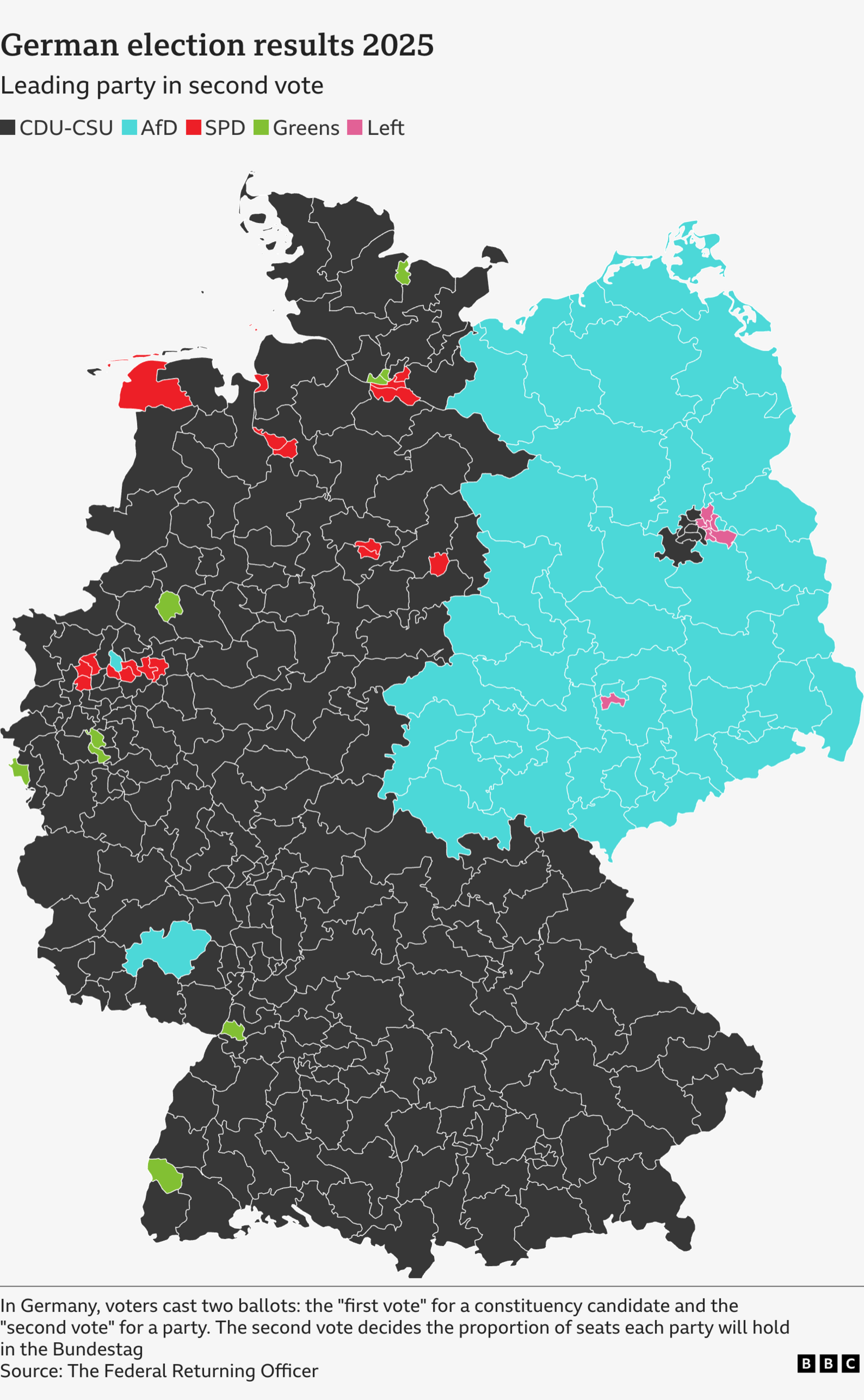
As part of its role in ensuring Germany's "free democratic basic order", the domestic intelligence agency is responsible for both counter-intelligence and investigating terror threats.
Although its change in designation of the AfD is expected to be challenged in the courts, it would likely lower the threshold for the agency using informants and surveillance in monitoring the party.
Some German politicians have said the party's new designation should lead to a ban.
Under Germany's Basic Law - a constitution adopted in 1949 four years after the fall of Hitler's Nazi regime , external- parties that "deliberately undermine the functioning of Germany's free democratic basic order" can be banned if they act in a "militant and aggressive way".
Domestic intelligence cannot push for a ban on the party - that can only go through the two houses of parliament, government or the constitutional court - but its latest decision could encourage others to start the process.
Outgoing Chancellor Olaf Scholz warned against rushing into a decision, but Heidi Reichinnek of the Left Party said no-one could accept that "a proven right-wing extremist party is fighting and destroying our democracy from within".
Since the war, the constitutional court has banned only two parties, both in the 1950s.
The Christian Democrat state premier of Schleswig-Holstein in northern Germany called on the incoming government to initiate proceedings to ban the AfD. Daniel Günther told Spiegel magazine that the party presented a risk to "social harmony".
But Michael Kretschmer, the Christian Democrat premier in the eastern state of Saxony, was quoted as saying that the "enemies of democracy are not fought solely by the state - defence of democracy begins in the heart of society".
In a further post on X, Musk argued on Friday that banning "the centrist AfD", which he also labelled Germany's most popular party, "would be an extreme attack on democracy".
The deputy leader of the Social Democrat SPD, Serpil Midyatli, said it was now in black and white what everybody already knew. "It's clear for me that the ban has to come," she said, according to German press agency dpa.
Regardless of the AfD's election success, she said the founding fathers of Germany's post-war constitution had sought to ensure the country would not be plunged back into the abyss.
Related topics
- Published25 February
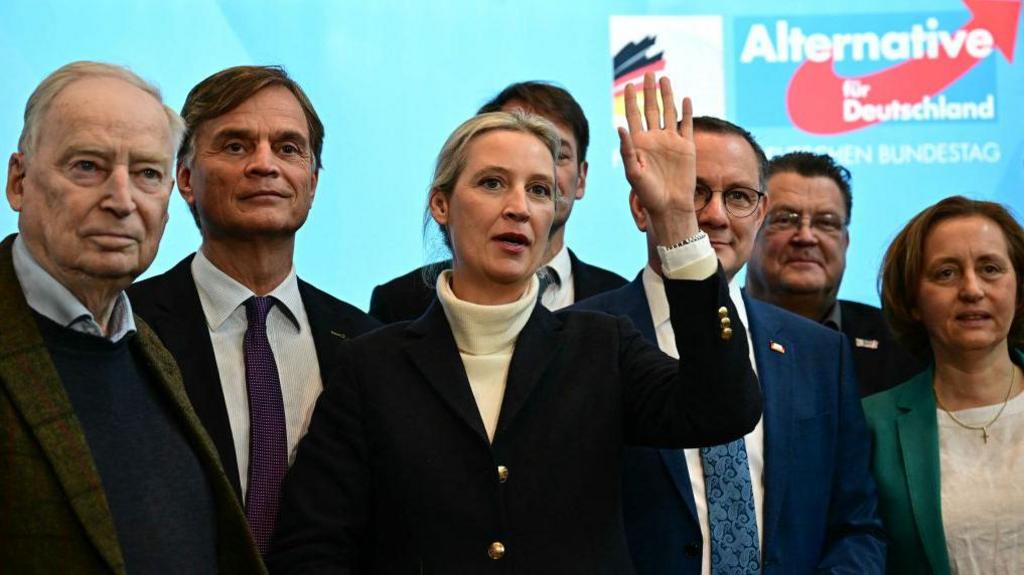
- Published13 January
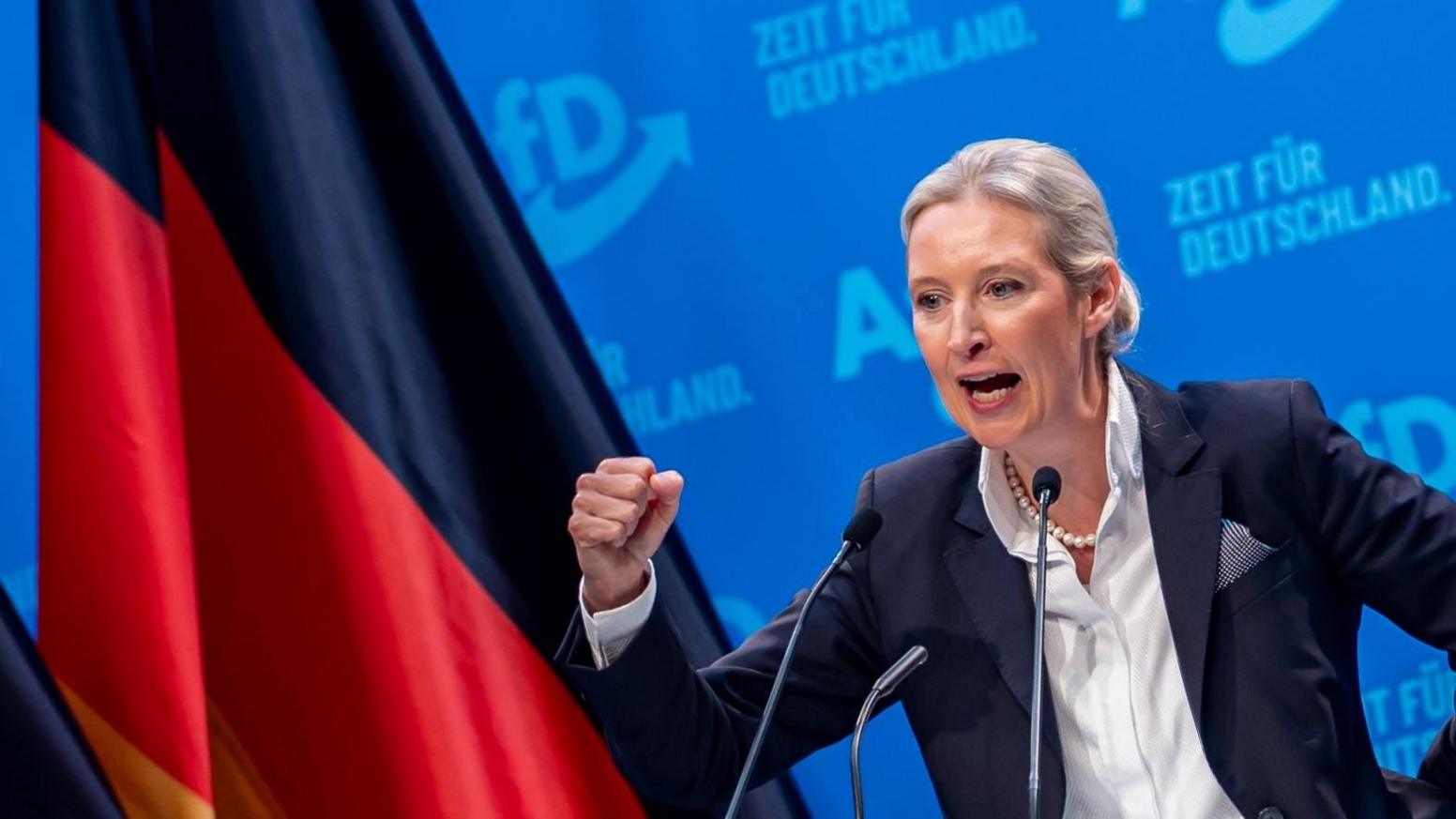
- Published10 January
